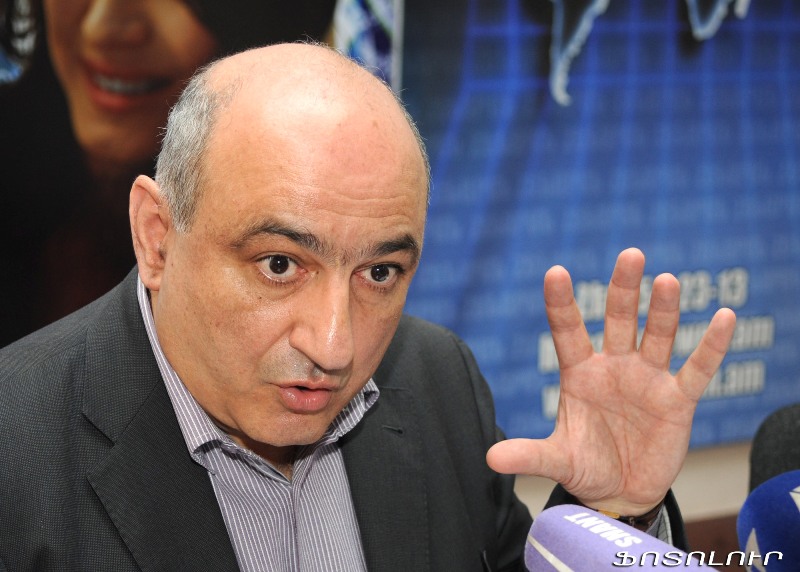Interview with the National Coordinator of the Eastern Partnership Civil Society Forum in Armenia, President of Yerevan Press Club Boris Navasardyan, who is now in Lithuania, Vilnius and takes part in the civil society representatives and experts forum of the Eastern Partnership Summit. – The main regret and examples in the opinions voiced in the civil society representatives and experts forum of the Eastern Partnership Summit were about Ukraine. It left the impression that Europe has pretty light attitude to Armenia with regard to refusal from the EU Association. – Yes. Of course, they are very fresh impressions for Ukraine. With the retreat of the President of Armenia, all emotions are already neutralized within two months. And, in general, if we take the Eastern Partnership as an initiative, it is clear that for the majority of EU member states, the attractiveness of it was in Ukraine as a major economy, a resource and a country with a huge market. For Armenia, it is clear that much less attention has always been given, in the light of the size of our country and uncertainty of ambitions. Although, Armenia as a state, has been quite effective in carrying out the negotiations. However, Armenia has never, unlike the countries conducting negotiations over the Association Agreement, wished to become an EU member country. It is clear that at this stage the attention of both the expert community and politicians is on the problem with Ukraine. In the second place, of course, is the event, which will take place tomorrow: it is the day of initialing agreement of Moldova and Georgia, as well as the practical application of visa liberalization proposed to Moldova. If, of course, parliaments of Moldova and the EU member states ratify the proposal of the European Commission. – The Armenia press reports were saying that confidential negotiations are being held between Armenia and the EU in Vilnius for signing a document indicating further cooperation. Judging from the fact that the Armenian delegation was present at the summit on the highest, presidential level, can we expect that tomorrow, however, an essential document will be signed with Armenia? – You know, perhaps, this is my subjective prediction, as there has been no confirmation from non-official or semi-official sources that the President of Armenia will participate in the summit, if there is a two-sided document with the EU. And if I keep thinking with that logic, then it is possible that there will be a two-sided document. However, these are my subjective assessments. Nothing to that effect was hinted in today’s discussions and yesterday’s off-the-record meetings. – If, in fact, there is no real prospect that tomorrow some kind of document will be signed with Armenia, in this case how can we qualify the presence of the President Serzh Sargsyan in the Summit? – There is a very important consideration from various conversations. Ukraine and Armenia leadership, in the near future, would have major challenges to meet with the EU and its member states’ leaders. The contacts would be rapidly restricted. And, in any case, being here is a chance first to have these contacts and, then, maybe, to some extent, result in violation of natural development, which can be in terms of Armenia’s international isolation, at least, to Europe. – In general, what are the sentiments? Frustration seems to be dominant. – Yes, it is true, and it was primarily again associated with Ukraine, because Armenia’s failing to initial the Association Agreement, of course, did not leave such a great effect on everybody’s sentiment, such as Ukraine’s, especially the last-minute refusal or delay. But if you try to look at the situation a little sober, a very interesting view was made by the Swedish Foreign Minister Carl Bildt, saying that when in 2008-2009 Poland and Sweden were suggesting to initiate the Eastern Partnership program, no one then would expect that even the result that exists today, 4-4.5 years later, will be available. In other words, among the six Eastern Partnership countries, there will be some that will be initialing the Association Agreement, and that Moldovan citizens, already since 2014, have realistic chances to travel to EU countries, the Schengen zone, without visas and biometric passports. I guess we can agree with the minister. In 2009, such prediction would sound as very optimistic. Naturally, in the last 2-3 years, probabilities and expectations were much higher, and that is the reason that the pessimistic sentiments prevail.
Interviewed by Nelly Grigoryan




















































